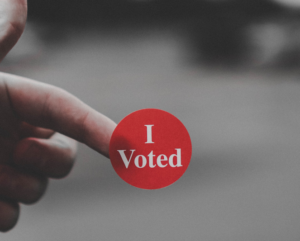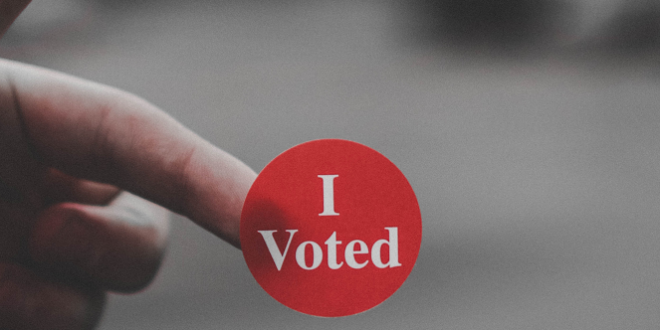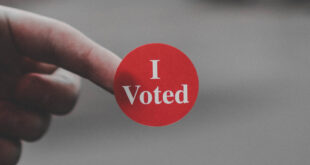One of the features of voting in recent elections, and particularly in local body elections, is the increasing number of people who have not voted. At local body level, this is already a real concern, and it is quite possible for local body politicians to be elected with a fraction of the maximum possible vote. If this is democracy in action today, then I think democracy is at real risk. It is not too farfetched to think that a determined minority group could use the low voter turnout to capture the direction of local body politics in a particular area, for their own ends, even if this was in conflict with the interests and wishes of the wider community.
The situation is not quite so dire at the national level but low voter turnout is still a concern.
The problem is particularly acute for young people – middle-aged and older people still turn out in reasonable numbers for elections. The result of this is more insidious than that of a minority group deliberately capturing the process for their own ends. It means that the pressure on elected politicians is skewed toward the views and expressed desires of older voters. These older voters make up mostly but not exclusively, the baby boomers. Although this skew might be satisfying for older voters, it is a concern for the future development of our society because that society will be formed by what are now the younger age group. There is a real risk of delivering to the next generation a society from which they feel quite alienated – and to which they may take violent exception. This can be seen for example in the political reluctance to deal effectively with the issue of burgeoning National Superannuation and the continuing preoccupation with private road transport.
One way to fix all of this might be to make voting compulsory as it is in some other countries, but I doubt the political will to do it here and doubt even more whether it would actually make any positive difference. I might even make matters worse through the deliberate spoiling of ballot papers by those who disagree with the policy of compulsion.
So why the reluctance to vote? I think there are two obvious reasons – and there are undoubtedly others I have not thought of.
The first reason is that younger voters in particular already feel disconnected from the political process and the issues it is throwing up, and simply have no incentive to vote. In many cases, the lack of incentive produces apathy, and in others a growing resentment. We are talking here about the smartphone/social media generation which has little interest, for example, in personal driving for transport. This is, of course, a vicious cycle – the less that this group influences politics, the worse the alienation is likely to become.
To be fair to the political parties – particularly Labour and the Greens – this issue is recognised and there is a willingness to float policies which reflect youth views, even if there is little support from the older generation. However, if the parties go too far in that direction they then alienate older voters and this is very definitely reflected in voting. So, it is very much a balancing act. The balancing act favours the status quo because politicians want to get re-elected and it is the older generations who favour the status quo who turn out to vote in the highest percentages.
The second reason is that the current voting process is simply not appropriate to the modern, young, online generation. Most have little interest in trudging down the road to a polling station – even if the weather is OK – as opposed to the favoured alternative of doing it all online without having to leave the house!

The second of these reasons is the easiest to fix. It would be very simple to introduce an online voting option and I think this will happen in due course – maybe even for the next election.
The first reason is more problematical because we have the dilemma of two generations (which is somewhat of an oversimplification – there are actually multiple generations and they overlap with each other) who have quite different views of what is important and what should be provided by the Government. I think one way around this problem may be to step outside the normal voting process altogether and create a mechanism for all generations to bring their view of what is important to the table – a sort of forum on intergenerational perspectives, how they differ and how they might be reconciled. The information resulting would become public information and the challenge for the political parties would be to recognise the indicated changes – not fight them – and create the basis for a smooth transition to the achievement of indicated change.
For this to work, those participating in the forum would have to be able to express views which were genuinely representative of their generation and achieving that would have some significant challenges. The temptation would be to “stack the deck” with people who had excelled in life to date or who were identified as potential leaders. The problem is that people fitting this prescription may not be representative of their generational cohort, and there may need to be a lower level process that first enables participants in the forum to be identified and confirmed by their own generation, and then arms those representatives with a genuinely representative agenda. This probably argues for a process which mirrors the 3-year political cycle but leads it by say a year – this would give the forum the time to do its work and to provide outcomes at an early enough stage to influence political manifestos.
But the key problem may lie with the incumbent political establishment and its commitment to policies and directions based on its own political ideology – and its willingness to step “outside of the box” and take on new ideas and directions. Without the active cooperation of the establishment, the concept of the forum would almost certainly be stillborn.
By Bas Walker
This is another of Bas Walker’s posts on GrownUps. Please look out for his articles, containing his Beachside Ponderings.









Join the Discussion
Type out your comment here:
You must be logged in to post a comment.